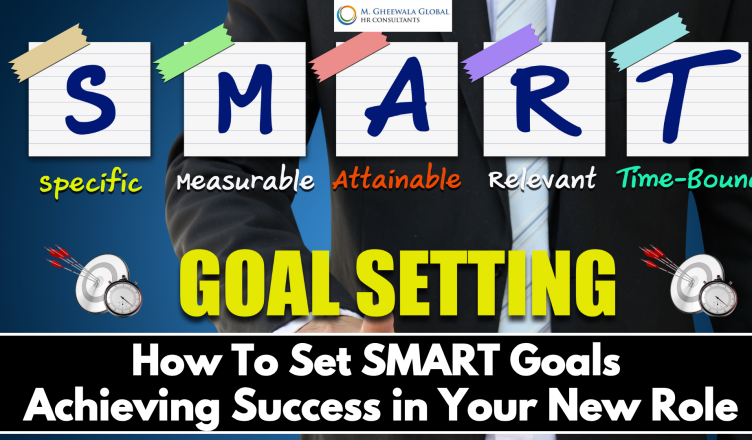Starting a new role is an exciting adventure, filled with fresh challenges and opportunities to learn and grow. But amidst the whirlwind of onboarding and information overload, it’s crucial to set clear goals to ensure you’re on track for success. Enter SMART goals – a powerful framework for crafting effective and achievable objectives.
What are SMART Goals?
SMART is an acronym that stands for:
Specific: Clearly define your goal. What do you want to achieve?
Measurable: Establish a way to track your progress. How will you know you’ve reached your goal?
Attainable: Set a goal that’s challenging yet achievable within your capabilities and resources.
Relevant: Ensure your goal aligns with your overall career objectives and the company’s goals.
Time-Bound: Set a specific deadline for achieving your goal.
By following the SMART framework, you transform vague aspirations into actionable plans.
Setting SMART Goals for Your New Role
Here’s how to leverage SMART goals during your initial months in a new role:
Identify Your Core Responsibilities: Start by understanding your core responsibilities and key performance indicators (KPIs) as outlined in your job description and discussed with your manager.
Break Down Big Goals into Smaller Steps: Large, overarching goals can feel overwhelming. Break them down into smaller, more manageable milestones. For example, if a goal is to improve your proficiency in a new software program, smaller milestones could include completing specific training modules by a certain date or achieving a set accuracy level on practice exercises.
Focus on Both Learning and Performance: As a new hire, your goals should encompass both learning objectives and performance targets. Learning objectives could involve completing online courses or attending industry events to build your knowledge base. Performance targets might involve achieving quotas or exceeding expectations on assigned projects.
Align Your Goals with Your Manager: Once you’ve drafted your SMART goals, discuss them with your manager. This ensures alignment with the team’s objectives and allows your manager to provide valuable feedback and support.
Examples of SMART Goals for New Roles:
Specific: “I will increase my proficiency in CRM software by completing all Level 1 training modules by [date].”
Measurable: “I will achieve a 90% accuracy rate on data entry tasks within the CRM system by [date].”
Attainable: “I will shadow a senior team member for 2 days within the first month to gain a better understanding of the sales process.”
Relevant: “I will attend two industry webinars on [topic] to stay current on market trends and enhance my client interactions.”
Time-Bound: “I will propose and successfully implement one process improvement suggestion within the first 3 months.”
The Power of SMART Goals
SMART goals empower you in several ways:
Increased Focus and Clarity: SMART goals provide a roadmap for success, keeping you focused and motivated.
Improved Performance: They allow you to track progress and identify areas needing improvement.
Enhanced Communication: Regularly discussing goals with your manager fosters open communication and better collaboration.
Greater Confidence: Achieving SMART goals builds confidence in your abilities and strengthens your performance in your new role.
Setting SMART goals is an ongoing process. As you gain experience and your role evolves, revisit and refine your goals to ensure they continue to propel you towards success. With dedication and a commitment to continuous learning, you’ll not only excel in your new role but also pave the way for a fulfilling and fruitful career path.
Follow M Gheewala Global HR Consultants for Latest Vacancies
